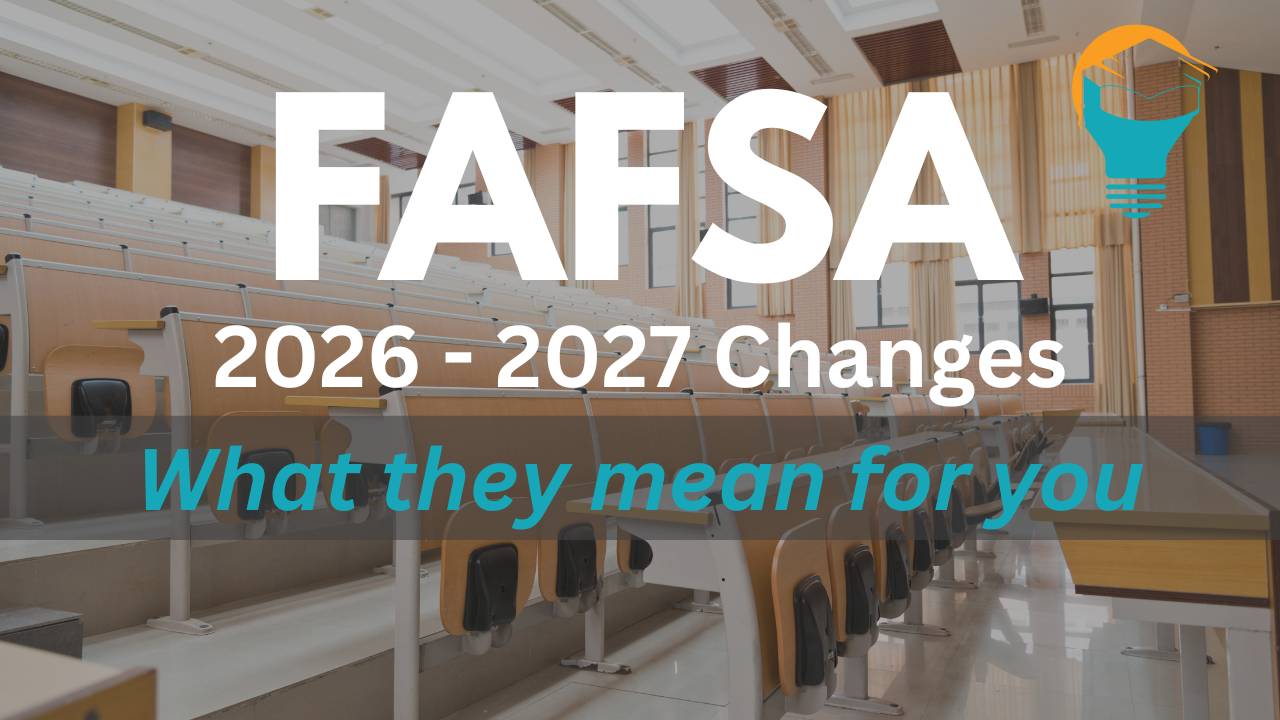What the New FAFSA Rules Mean for Your Family
Sep 18, 2025
2026–27 FAFSA & Pell Grant Rule Changes: What High-Income Families Need to Know
If you thought you could ignore Pell Grant rules because your income or assets are too high… well, you’re mostly right. But not entirely. Some upcoming FAFSA changes (thanks to the One Big Beautiful Bill Act) will shift how eligibility is determined — and we’ve helped families who “shouldn’t have qualified” unlock real aid by understanding the fine print.
Here’s what you need to know — especially if you own a business, a rental, a farm, or have international income in your financial picture.
🧩 What’s Changing — And Why It Matters
| Change | What’s New | Why It Matters (Even If You Think You’re Too "Rich" for Aid) |
|---|---|---|
| 1. Business & Farm Asset Exclusion | Family-owned businesses with fewer than 100 employees, and family farms (where you live), no longer count as assets for FAFSA. | For high-net-worth families, this could meaningfully lower your Student Aid Index (SAI). Translation: potentially more aid, and less scrutiny on legacy assets that used to be counted against you. |
| 2. Commercial Fishing Added to Exclusions | Family-run fishing businesses now get the same exclusion treatment as farms and small businesses. | This might sound rare, but here in California, it’s not that unusual. We’ve worked with families along the coast and in agricultural regions where this could absolutely come into play. |
| 3. Foreign Income Changes | If you claimed the Foreign Earned Income Exclusion, it gets added back to your income when calculating Pell eligibility. | You might’ve been optimizing taxes by excluding income abroad — but FAFSA sees that income now. If you’ve got an expat past (or dual-citizenship dynamics), let’s run the numbers. |
| 4. Pell Cutoff: SAI Threshold Introduced | Students with a Student Aid Index above ~$14,790 will no longer be eligible for Pell — unless they qualify for certain exceptions. | Most of our clients are already above this. But knowing where the cutoffs are still matters — and we’ve helped families qualify by design, not by accident. |
| 5. Exceptions to the Rule | Children of fallen service members or public safety officers may still qualify for Pell even if over the SAI limit. | If your family may qualify under these guidelines, let’s talk. We can review and even contact the financial aid office on your behalf if needed. |
| 6. Timing: Beta and Beyond | These changes go into effect for the 2026–27 FAFSA, launching officially October 1, 2025. Beta versions may roll out earlier. | If you're filing early, just know your FAFSA might get reprocessed once these rules are finalized. Nothing to worry about — we’ll track it for you. |
🧭 How This Affects Your Family’s Planning
- Strategic Asset Planning
If you have a business, farm, or rental portfolio, this is an opportunity. The right positioning could reduce your Student Aid Index, opening doors to aid (or merit) at certain schools. We know which ones. - Tax Optimization ≠ FAFSA Optimization
What’s good for the IRS isn’t always good for the FAFSA. Foreign income, trust structures, K-1s — if any of those are on your tax return, we should talk. We’ll help ensure you don’t accidentally price yourself out of aid. - FAFSA Is Still Worth Filing
Even if you’re confident you won’t qualify for need-based aid, the FAFSA is often required for merit scholarships, state grants, and institutional aid. More importantly, things can change. We’ve worked with families affected by wildfires (Alta Dena, Malibu), mudslides, and other events that drastically shifted their ability to pay. Filing the FAFSA can act like free insurance — it keeps the door open if your situation suddenly changes. - You Don’t Have to Figure This Out Alone
This is exactly what we do — with high-income, high-asset families just like yours. We’ll help you sort through whether these changes impact your child’s aid options… and if they do, we’ll show you what to do about it.
📆 Final Thought: FAFSA Opens October 1 — Are You Ready?
The FAFSA for 2026–27 opens in just a few weeks, and while the rules may be shifting, the need to file strategically remains the same. If you want to reduce out-of-pocket costs without wasting hours decoding federal policy, talk to us.
We’ll help you understand how these changes affect your family and whether you're leaving money on the table — even if you’ve been told you “won’t qualify.”
